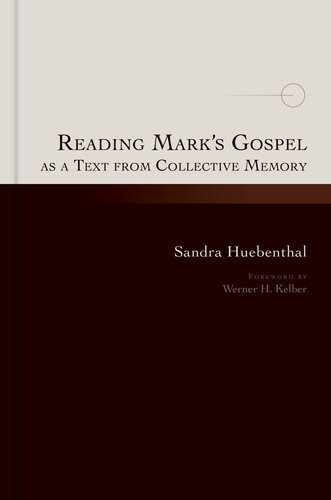

Most ebook files are in PDF format, so you can easily read them using various software such as Foxit Reader or directly on the Google Chrome browser.
Some ebook files are released by publishers in other formats such as .awz, .mobi, .epub, .fb2, etc. You may need to install specific software to read these formats on mobile/PC, such as Calibre.
Please read the tutorial at this link: https://ebookbell.com/faq
We offer FREE conversion to the popular formats you request; however, this may take some time. Therefore, right after payment, please email us, and we will try to provide the service as quickly as possible.
For some exceptional file formats or broken links (if any), please refrain from opening any disputes. Instead, email us first, and we will try to assist within a maximum of 6 hours.
EbookBell Team

0.0
0 reviewsHow did the Gospel of Mark come to exist? And how was the memory of Jesus shaped by the experiences of the earliest Christians?
For centuries, biblical scholars examined texts as history, literature, theology, or even as story. Curiously absent, however, has been attention to processes of collective memory in the creation of biblical texts.
Drawing on modern explorations of social memory, Sandra Huebenthal presents a model for reading biblical texts as collective memories. She demonstrates that the Gospel of Mark is a text evolving from collective narrative memory based on recollections of Jesus's life and teachings. Huebenthal investigates the principles and structures of how groups remember and how their memory is structured and presented. In the case of Mark's Gospel, this includes examining which image of Jesus, as well as which authorial self-image, this text as memory constructs. Reading Mark's Gospel as a Text from Collective Memory serves less as a key to unlock questions about the historical Jesus and more as an examination of memory about him within a particular community, providing a new and important framework for interpreting the earliest canonical gospel in context.